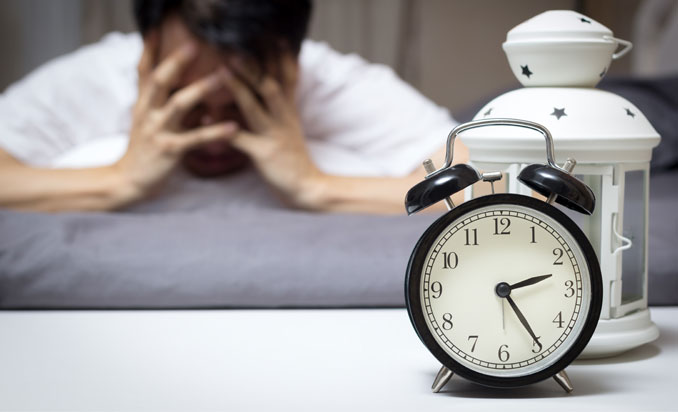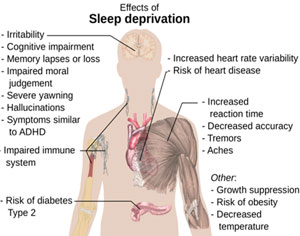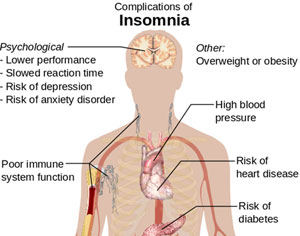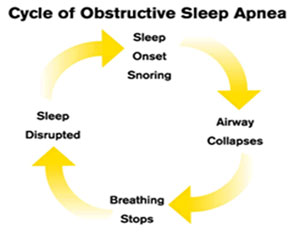Sleep Disorders and HGH: How Hormone Therapy Can Impact on Sleep
Insomnia, sleep apnea, frequent awakening, and other sleep disorders may all be linked to a decline in human growth hormone levels in adults.
Numerous research studies on sleep disorders and HGH deficiency all point to the same thing – reduced growth hormone levels can impact the quality and duration of sleep.
Of course, a decline in sleep also affects daytime energy levels, concentration, productivity, immunity, safety, and mood.
Nearly half of the body’s daily supply of HGH is released during sleep, which is why the hormone doctors at National HRT tell people to get the recommended 8 hours of sleep each night.
Individuals who do not sleep well at night are often irritable during the day, overweight because they need to consume more calories for energy, and have a greater risk of falling asleep behind the wheel. [1]
The connection between sleep and HGH was the subject of a study reported in the Journal of Clinical Endocrinology & Metabolism in 2010 with the following facts: [2]
- Patients with pituitary growth hormone deficiency spent more of their sleep time in slow-wave (SWS) than the control group
- The intensity of slow-wave sleep was also higher
- Older individuals had fragmented late sleep and less total hours
- Disturbed sleep contributes to increased tiredness
The deep sleep HGH connection featured in a Chicago Tribune report cites a University of Chicago study that shows that these changes in both sleep and HGH production begin as early as a person’s late 20s to early 30s.[3]
The potential use of HGH for sleep disorders arising from this hormonal decline is important because not only are HGH levels lower in older adults, but evening measurements of cortisol are higher. Cortisol in the bloodstream at night heightens alertness and attention, making it harder for the brain to turn off and initiate sleep.
HGH and Insomnia
The same cortisol that increases in the bloodstream during the day and at night is frequently the cause of insomnia.
The brain is at a heightened state and cannot allow for the peaceful transition to sleep.
Perhaps the most important of the decreased sleep HGH facts is that the brain needs signals from human growth hormone to help it initiate deep sleep. When not enough HGH is in the blood throughout the day, falling asleep becomes difficult.
The ramifications of insomnia are vast:
- Decreased work productivity
- Increased risk of accidents
- Daytime sleepiness
- Overeating
- Weight gain
- Obesity
- Impact on joints and bones
- Depression
- Reduced immunity
- Increased stress stimulating cortisol release
- Loss of libido
- Impaired mental processing
- Decreased hormone production – not only HGH but also testosterone and leptin (appetite suppressant)
- Increased risk of diabetes – impaired glucose tolerance
These are just some of the reasons to consider the use of a supplemental HGH-sleep aid – meaning HGH therapy to improve the symptoms of adult growth hormone deficiency.
Another important fact about sleep & HGH release is that the body’s level of inflammation also rises during periods of sleep deprivation.
What does that mean for a person who gets less than the recommended minimum of 7 hours to a maximum of 9 hours each night?
First: it suppresses the body’s initial immune response to invading bugs
Second: it increases the risk of illness and infection
Third: it increases the risk of chronic diseases and cancer
When it comes to getting enough HGH after sleep, getting the minimum 7 hours has never been more important than as a person ages.
Growth Hormone Deficiency and Sleep Apnea
Sleep apnea is a problem for many adults.
Not only can sleep apnea causing snoring that can keep others awake at night, but it can lead to the following concerns:
- Stroke
- High blood pressure
- Diabetes
- Heart attacks
- Depression
- Headaches
- Heart failure
- Worsening of ADHD
- Irregular heart beat
- Weight gain
First on the list of HGH-sleep benefits that can help sleep apnea sufferers is weight loss. Human growth hormone stimulates the metabolism to convert food and fat into fuel, enabling the shedding of excess belly fat.
With weight loss comes a reduction in the severity of sleep apnea for many people.
During one study of adults with sleep disorders, HGH was determined not to aggravate or induce obstructive sleep apnea, and in fact, could improve some quality of life dimensions in these individuals. [4]
Either way you look at it, increasing sleep at night will help improve human growth hormone production, and increasing HGH levels in the body will help support better sleep.
To find out more about HGH, better sleep, and how hormone therapy can help you, contact the hormone specialists at National HRT for a no charge, confidential consultation.
- National Sleep Foundation
- MAYO CLINIC
- pdfs.semanticscholar.org
- Hormone Replacement Therapy Improves Sleep, Sexuality And Joint Pain In Older Women Date: August 23, 2008Source: University of Adelaide
- Science alert
- The Impact of Sleep and Circadian Disturbance on Hormones and Metabolism Tae Won Kim, Jong-Hyun Jeong, and Seung-Chul Hong Received 31 December 2014; Revised 24 February 2015; Accepted 24 February 2015
- Hormone Replacement Therapy and Sleep-disordered Breathing Eyal Shahar, Susan Redline, Terry Young, Lori L. Boland, Carol M. Baldwin, F. Javier Nieto, George T. O’Connor, David M. Rapoport, John A. Robbins
- Sleep, Rhythms, and the Endocrine Brain: Influence of Sex and Gonadal Hormones Jessica A. Mong, Fiona C. Baker, Megan M. Mahoney, Ketema N. Paul, Michael D. Schwartz, Kazue Semba and Rae Silver Journal of Neuroscience 9 November 2011, 31 (45) 16107-16116;
- Sleep.org
- Healio EndocrineToday
- THE CONVERSATION
- NATURAL FERTILITY INFO
- Sleep-disordered breathing and hormones T. Saaresranta, O. PoloEuropean Respiratory Journal 2003 22: 161-172;
- Dr. Doni
- DoveMed






